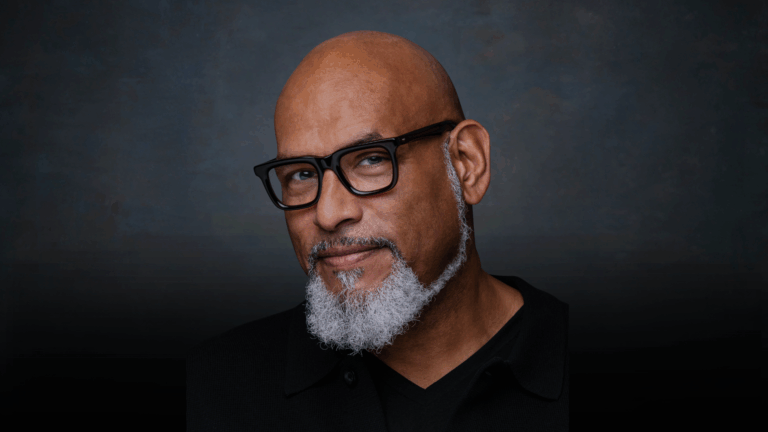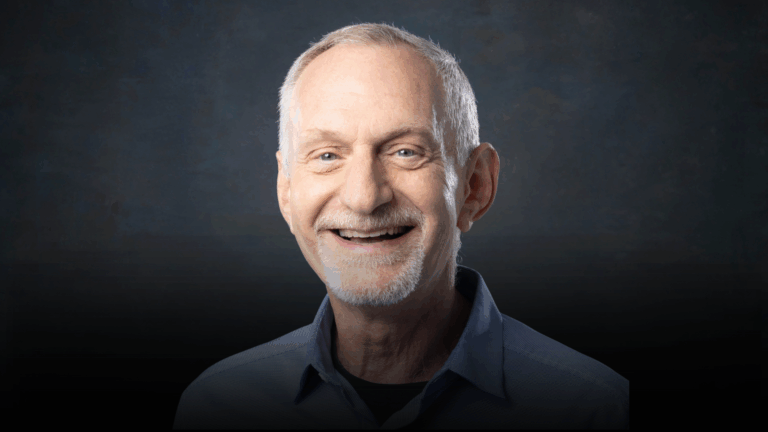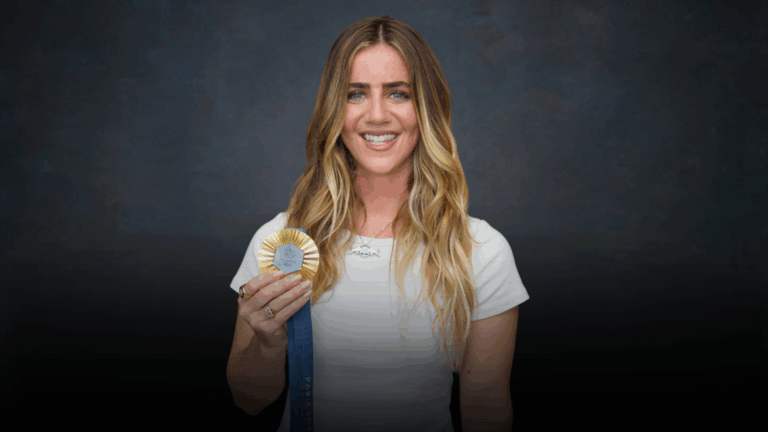This week’s conversation is with Pete Carroll, the head coach of the Seattle Seahawks and my business partner at Compete to Create.
In this conversation, we decided to do something different — we flipped the model a bit and for good reason.
I’m incredibly excited to share that my first book, an Audible Original, is coming out on July 9th, titled: Compete to Create: An Approach to Living and Leading Authentically.
I couldn’t be more honored to co-write it with Pete Carroll.
So what’s different about this conversation?
Beyond being overwhelmingly excited to announce our Audible Original release, we invited Sage Steele, ESPN SportsCenter host and recent Finding Mastery guest, to interview both Pete and myself.
We discuss how we first got started working together, what we’ve come to learn about helping others explore their potential, and why we wanted to write a book together.
Our Audible Original offers an in-depth look at how world-class athletes, artists, entrepreneurs and top business leaders organize their inner lives to explore the edges of their potential – and at the same time live life with purpose and meaning.
This book is about celebrating the insights and practices that are at the center of human flourishing.
We pull back the curtain and reveal the psychological framework and mental skills that are common to great performers and leaders and show you how you can apply those same principles and practices to all areas of your life.
If you’ve already taken our online course Finding Your Best, this will be a great companion to your growth-arc.
I’d be honored if you’d pre-order it at audible.com/competetocreate.
If you know there is more inside you to discover—more to contribute, more room to grow—I think we found the sweet spot between applied science, incredible stories and crystal clear ways you can train your mind and organize your inner life to, quite simply, live and lead authentically.
And – if you haven’t had a chance but still want to take our course, we’re offering $50 off when you go to competetocreate.net/findingmastery.
“Everybody has a culture. Sometimes they don’t know that they’re in control of it to some extent and that they can do what they want with it. There’s a culture there anyway. Is it the one you want? Is it the one that serves you best? That’s what we’ve been working at for so long.”
In This Episode:
How did Pete and Mike start working together?
PC: We were introduced from a mutual friend, we started talking and we hit it off. And really the foundation of how Mike was trained and the foundation of how I’ve been trained, I don’t know if I was trained, but whatever I was, but we really did see eye to eye. And so, we’ve spent numbers of years (since 2013) now working at trying to help people play really well, and win, and have the best one that they can create through their sport and it’s been a blast.
How did they come up with the idea for their new Audible Original?
MG: This is a book about helping people in the most simple of terms find their very best so they can help others do the very same.
And where did it start? It started with coach and I thinking about how can he build, and continue to amplify, and grow on what he already had established the culture at Seattle Seahawks? And stemming back to USC, what are some of the innovations that we can continue to move forward with? And that’s the impetus of where it started. And the shared space is really about how do you organize and train the mind? And then how can we do that for people who want to be their very best? What are some of those systems? What are some of those practices?
What was the turning point where Pete believed they had something special?
PC: I do think that there’s something really special and it’s come down so much that it’s coming from our heart. I know my heart in particular that what we’re teaching and what we stand for is really feels true. And that’s why that authentic word comes up, because I don’t want to do anything that’s not authentic and really purely coming right from the center of me. So, that’s why all my stuff comes from competition, because I’m a competitor. It comes from caring so much about the people that you deal with and how far will you go to help them? And Mike has helped with all really the skills that it takes to help people train their minds and get to a point where they really can value the mindset that they need to be at their best. And so, it’s been really fun, so I’m hoping that we’re just getting started. After these years, I hope we’re really just turning the corner now.
Why it’s gotta come from the heart
PC: All coaches are trying to put their philosophy in motion and they’re trying to set in motion winning ways and a mentality that can allow you to win and practice regimen and all that kind of stuff. And so, I’m not doing anything different than anybody else did, but I’ve done it long enough. And somewhere along the way, it became really, clearly apparent that if you’re going to have a chance to make it, you better be coming right from your heart.
Consistency is key
PC: Looking back at the big picture well after the fact, when you say what you accomplished and what you did, and the consistency is really something I’m really proud of because I think that’s the system and I think it’s philosophy, different players, different coaches and all that. I take a lot of pride in that.
MG: Being able to repeat it, that’s the key word. And so, it’s not like you’re trying to repeat the wins, they happen if you can get some other stuff right and the other stuff is, how do you create a culture? How do you have a system to help people train their minds? And that’s what we want to share. You can train confidence, it’s a skill. You can train optimism. And that skill happens to be, we believe, at the center of mental toughness. Why would you stick with something that’s hard if you don’t fundamentally believe that it’s going to work out?
What makes a great coach?
PC: How are you going to communicate? You start off showing them how much you care and then how much you see in them, what you see that they’re capable of becoming and challenging them to start to get into that conversation as well. And then once you have that conversation and you come to an agreement, yeah, your all this. Then it’s helping them stay in connection with that along the way as they learn, and grow, and falter and get challenged, and then take steps forward and take steps backwards. You stay with them and continue to keep them in connection with that vision that you’ve created with them. And that’s how it happens. Whether you’re a ball coach or you’re coaching in the corporate world.
What gets in the way of caring?
PC: Defending yourself because you think the whole world’s coming at you, you can’t give when you’re in that mood. You can’t give to the people around you. If you’re feeling like every turn you better look out here, look out there, you can’t be free flowing, you’re in a protection mode. And so, that’s part of it. We have to work our way through, get into an environment where you feel connected, and you feel like you belong, and you feel safe enough that you’re okay to be vulnerable, to be opened up, and to be receptive, and know that people care about you.
It’s okay to care
PC: If there’s one little message that I wish we could get across to people is that it’s okay to care. It’s okay to show that you care. People are hesitant to want to do that because they feel like, oh, I bet it shows maybe they think it’s weakness or they think that it’s misguided or whatever. I think it’s the start of the great growth, it’s the beginning of your march forward with the challenge or the person that you’re dealing with.
Why caring matters on and off the field, inside and outside the office
PC: What we have come to face right now and what’s going on in our communities right now has brought to light again for the thousandth millionth time how important it is for us to take care of the people in our communities. And we have an opportunity to make a choice about what you’re going to do about it. How you’re going to do it. If you’re going to or you’re not going to. And I don’t think that there’s ever been a time that’s more ready for us to show how much we love the people around us, wherever they come from, whatever colors their skin is, whatever their background is. And I know that there’s a lot of work to be done in a lot of ways, voting issues and legislature issues, but I don’t know that there’s anything more important right now. And I’m going to stay with what I know. I don’t know how to do anything else.
What do Pete and Mike hope people take away from their Audible Original?
PC: The value of doing the hard work, the self-discovery stuff. I think there’s so much value there. And if people would just recognize that if you just do the work and stick with it, there’s nothing academic about it that you can’t handle. There’s nothing too scientific. It’s just doing the work to just keep asking yourself the question of, “What do I believe in? What’s important to me?” There’s so much value that comes from that when you really declare it. And if you go through that process, if nothing else happens, that’s what I hope people would take from it. Because again, we always find ourselves beginning with self-discovery and we did again in this work and I’ll just leave it at that. That’s really the part that’s most important to me.
MG: What we work to do is to give a structure and a format where you can put handles to this invisible world of psychology so that you can really get your arms around it. And self-discovery, it’s a real process and there’s no right and wrong. It just takes a commitment to understand. . But one of the reasons this is so important is because once you know who you are, nobody can take it away from you. It’s incredibly powerful. No external circumstances can ever strip you from it. And so, that part, when you think about psychology in general, there are two basic parts of psychology. There’s the discovery processes, and then there’s the skill development. And I think we found that simple yet still deep integration between the two to be able to say, “Okay, here’s an accelerated way for self- discovery. And then here are the skills that you can invest in, calm, confidence, focus, trusting oneself, optimism, all of that stuff.
The present moment is precious
MG: It’s where high performance is expressed in the most mechanical way. It’s where wisdom is revealed. And it’s also where all things that are good, true, and beautiful are experienced. So, I think our job as being human, our responsibility is to live in the present moment more often. But to do that requires a training of the mind. It requires a deep commitment to discovery. And mindfulness is one of those golden threads that is an accelerant to that path.



